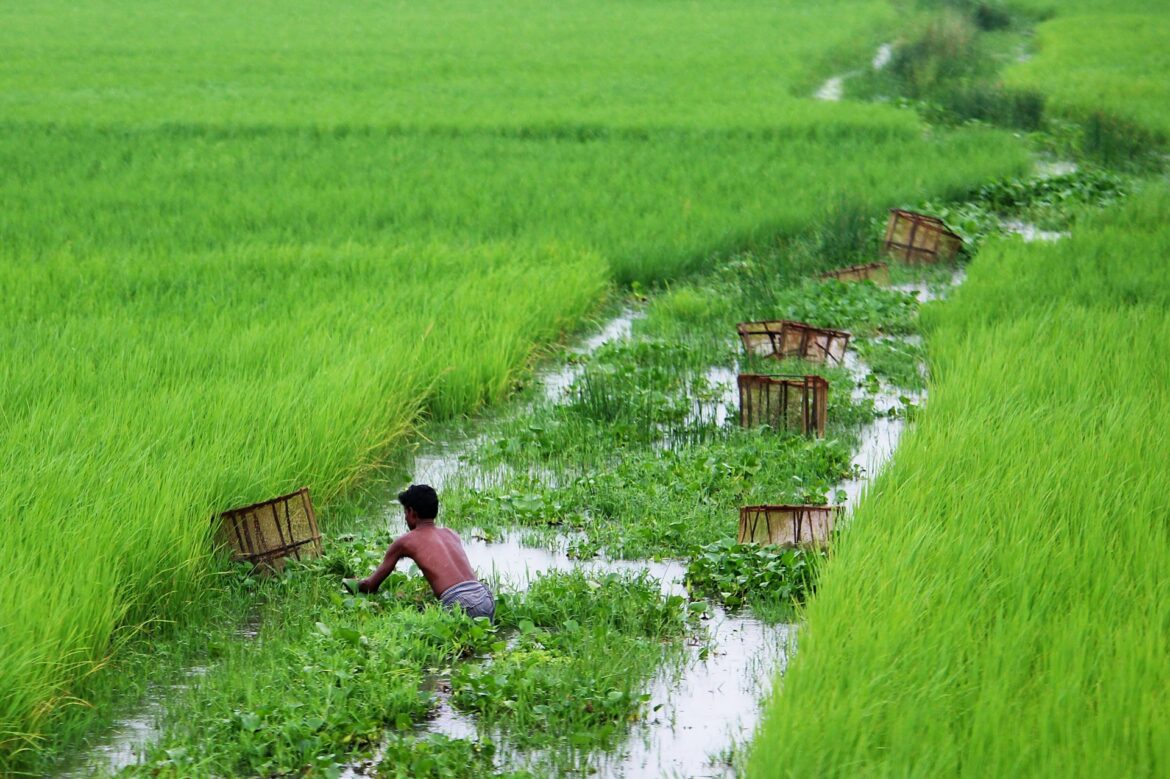In Rangpur, a local farmer has transformed his livelihood through a sustainable and innovative approach to agriculture—integrated fish and vegetable farming. This method, which combines aquaculture and crop cultivation in a single system, is proving to be both environmentally friendly and economically rewarding for small-scale farmers. Highlights how farmer Md. Motaleb of Gangachara upazila turned his once struggling farming practice into a profitable venture. Using a pond for fish cultivation and the surrounding embankments for growing vegetables, Motaleb now earns a stable income and serves as an inspiration to other farmers in the region. Integrated farming makes the most of limited space and natural resources. In Motaleb’s case, he stocked his pond with carp varieties while planting spinach, bottle gourd, and okra along the edges. The water from the pond naturally irrigates the crops, and organic waste from the fish supports soil fertility—creating a balanced, low-cost farming cycle. Agricultural experts from the Department of Agricultural Extension (DAE) have praised the model for its efficiency and sustainability. They note that such systems reduce the need for chemical fertilizers and synthetic pesticides, lowering input costs while improving soil health. More importantly, it offers a practical solution for small and marginal farmers to increase productivity without expanding land use. Farmers adopting this method also benefit from year-round production. While fish are harvested after several months, vegetables grow faster and can be sold regularly. This consistent income helps families plan better, invest in education, and improve their quality of life. The initiative has gained support from local agriculture offices, which are offering training and guidance to help more farmers adopt the system. The government is also encouraging integrated farming as part of its broader vision for sustainable agriculture and food security in rural areas. Motaleb’s success story is already motivating neighboring farmers to follow suit. Many are now interested in learning the technique and seeing similar results on their own land. The model is especially promising for regions prone to waterlogging or limited by small plots, where traditional farming might not be sufficient. As climate change continues to affect farming conditions, adaptive solutions like integrated fish-vegetable farming offer a way forward. It not only strengthens rural livelihoods but also promotes environmentally conscious practices that protect natural resources. Motaleb’s experience proves that with the right mix of innovation, support, and hard work, small farmers in Bangladesh can build a better future for themselves and their communities.
Rangpur Farmer Thrives with Integrated Fish-Vegetable Farming Model
48


